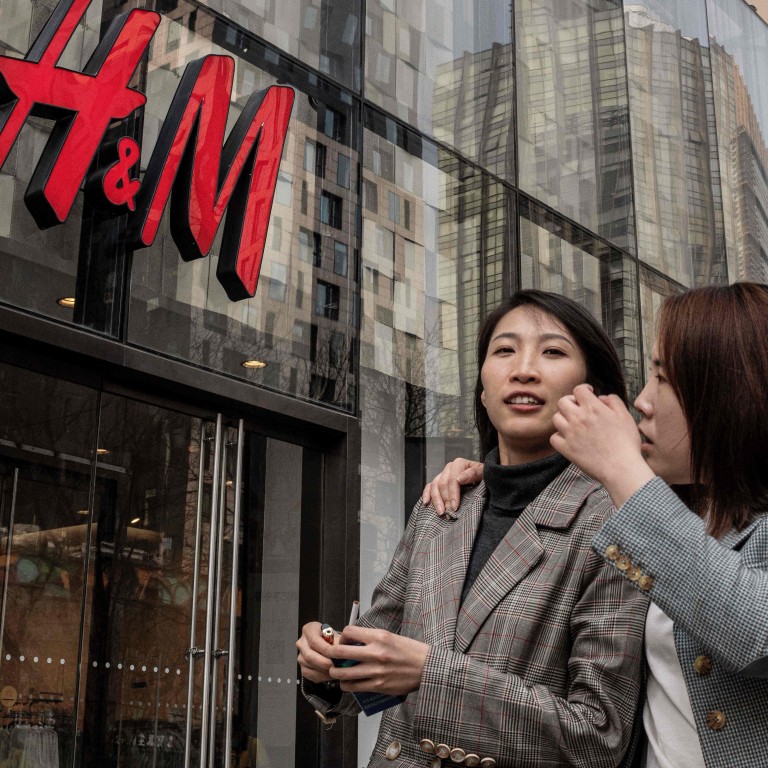
As Xinjiang cotton row rages, European firms ‘caught between rock and hard place’
- EU Chamber of Commerce in China says its members are facing an increasingly politicised business environment
- Firms face backlash if they are perceived to be saying something that is ‘anti-China’, it says
European companies in China are facing an increasingly politicised business environment, a leading trade group said on Thursday.
“On the other, they are potentially subjected to public backlash in China if, through showing that they are acting responsibly and that their supply chains are beyond reproach, they are perceived to be saying something that is ‘anti-China’.”
China presses global fashion brands to reverse Xinjiang cotton boycott
Beijing has repeatedly denied the allegations.
The EU chamber said that while it did not comment on individual cases, “the increased politicisation of business is seeing more European companies being caught between a rock and a hard place”.
The backlash against H&M has seen its products removed from major Chinese e-commerce platforms.
“There are many foreign companies that have released statements ‘cutting ties’ with Xinjiang cotton in the past two years,” the Communist Party mouthpiece said on Weibo, China’s Twitter-like social media platform.
Topics about Chinese celebrities ending their endorsement deals with international brands have been trending on Weibo, along with hashtags like, “I support Xinjiang cotton”, “It is the [companies’] loss if they miss out on Xinjiang cotton”.

China’s commerce ministry said on Thursday that consumers had “responded with action to the so-called business decisions made by certain companies based on false information”.
“We hope those companies would respect the market and correct wrongdoings to avoid politicising commercial issues,” ministry spokesman Gao Feng said.
Xinjiang cotton was “pure white and flawless” and “should not be subject to smear and tarnish campaigns by any forces”, he said.
Beijing on Monday imposed sanctions on 10 European individuals – five of them members of the European Parliament – and four entities in retaliation for the EU’s sanctions linked to Xinjiang.


